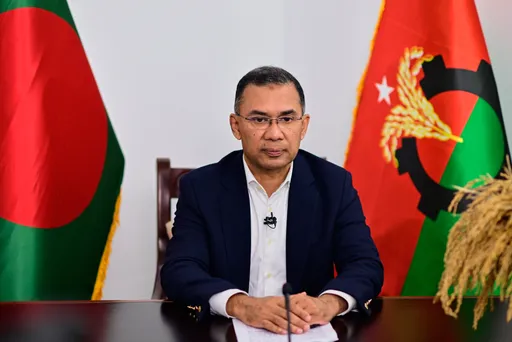When we consider migration flow throughout history, Turkey is one of the most important destinations in the world due to its location, both as a place to call home and as a transit route from Europe to the Middle East. Anatolia has experienced migration from both nearby and more distant regions, seeing the arrival of Jewish, Arabs, Spaniards, Greeks, Slavs, and Turks, to name just a few. It has also seen the arrival of Albanians.
The largest communities of the Albanian diaspora are mainly found in Europe, the US and Turkey. In fact, there are more Albanians around the world outside the borders of Albanian countries such as Albania and Kosovo. Although there are no exact numbers, data suggests that around one million Turkish citizens have Albanian origins.
A great number of Albanians have migrated to Turkey throughout history, starting from the 16th Century through to the 20th Century. There was heavy migration during the Ottoman era and that continued into the 1920s as a result of people escaping from the oppressive Yugoslavian regimes.
That’s why in almost every part of Turkey you will find Albanians. The diaspora is mainly concentrated in western Turkey, but for more than 200 years there have also been families of Albanian origin in the east; particularly in Bingöl, Diyarbakır, Doğubayazıt and Hakkari, which is dominated by the Kurdish population. This part of Turkey has close cultural and traditional ties with the border countries in the Middle East such as Syria, Iran, Iraq. The Albanians that arrived here centuries ago found different sociological and economic conditions to the rest of Turkey.
It is hard to assess the effect of immigration on Turkey as information on migration and settlement wasn’t collected or analysed in great depth between Ottoman times and the modern era. Records at city and province levels are very scarce, and across the country, the little recordkeeping there is, appears to be declining. Nevertheless, researchers and local people can provide insights on this issue.
Kamil Bitis, General Coordinator, from the Kosovo Cultural Center in Turkey, has travelled eastern Turkey for years just to seek out the few Albanian families. He wrote a book titled “Türkiye’de Unutulmuş Arnavutlar” (“Forgotten Albanians of Turkey”) in which he shared these families’ stories.
According to Bitis: “At the present time, almost no Albanian families know the Albanian language their ancestors spoke, they speak both Turkish and Kurdish. They don’t even know Albanian culture and history. They had married local women when their ancestors settled these cities. It has been going on for centuries. But interestingly they consider themselves as Albanian. They have been trying to discover their own roots through social media and an e-government portal (www.turkiye.gov.tr) after Turkey launched an online genealogy service.”
Bitis showed me one of his Facebook videos. In this video, he explains how to find and meet an Albanian family in Dogubayazit which is the easternmost district of Turkey, lying near the border with Iran. In the video, he talks with Divane Ozbey, an older Albanian man from Dogubayazit who doesn’t know where exactly he comes from. Ozbey only says: “I’m originally Albanian but from which country in the Balkans I come from, I don’t know.”
He explains: “I don’t know how to speak Albanian but people from the village know that my family and I are Albanian. My grandparents came and settled here approximately 200 years ago as Ottoman soldiers.”
There are still 10-15 Albanian families living in Dogubayazit. Migrating to big cities like Istanbul is a common practice due to the challenging economic and social conditions.
According to local sources, there is a large Albanian population still living in Bingol. Although they are now known as the largest Kurdish group, who speak both Turkish and Kurdish due to the fact that they have been trying to adapt to the community sociologically and culturally for centuries, the local people know that they are Albanians. These families had come from Peja, Kosovo to Bingöl during the Ottoman period.
It’s interesting that there is an emotionally strong connection to their nation among Turkey's Albanians, however, they know very little about their Albanian origin and languages. They have no problems with the Turkish state or living in Turkey, they are emotionally and technically very attached to their Republic of Turkey. However, if you ask them where they originally come from, they say they are Albanian despite not knowing the language or recent political developments.
According to some historians, the reason for this is the resettlement policy. Kemal. H. Karpat, one of Turkey’s most prominent historians, said in a study that people who complied with the Ottoman establishment were settled in ethnically sensitive areas. For instance, in line with Karpat’s argument, a local Turkish writer Mehmet Sadık Yigitbas has written a book called “Kigi” which is about a district in Bingol.
Bingol is mostly populated by Kurdish people. However, during the Ottoman Empire, some Albanian families settled in this city as well as others including Diyarbakır, Tunceli and Dogubayazit, to fight against the bandits who wanted to cause conflict for the Ottoman establishment. Most of these families were Albanian commanders in the Ottoman army. This is because of their close ties as both Turks and Muslims.
Baskin Oran, a well-known Turkish academic, wrote in an article that Albanians have very close ties with Turkishness. Maria Todorova, a Bulgarian historian who is best known for her influential book “Imagining the Balkans”, holds a similar view. She says: “Turkishness is actually a concept emphasising a separate nation adopted by Balkan Muslims in order to distinguish from Christian identity. For this reason, Balkan Muslims often use the word Turk when describing themselves. Islam and Turkishness met on the common ground during the Ottoman Empire.”
Suppressing riots is only one reason for developing this closeness. According to Bitis, Albanians were sent to the eastern part of Turkey as government officials during the Ottoman Empire and some revolting Albanians in the Balkans had been sent away to be punished. Additionally, most recent migrations to Turkey in the 1900s have been due to Serbian persecution.
For instance, Mustafa Ugur Gonulal, a researcher who lives in Turkey's east-central city of Malatya, says his grandfather was born in Ferizaj, Kosovo, and had fled to Turkey to escape Serbs’ persecution.
He explains: "He settled in Malatya in 1934 with the help of the Turkish state, which provided him with work and shelter. In the beginning, he felt excluded by locals due to the fact that he did not speak any language other than Albanian and followed his cultural practices. Locals sold the basic items at exorbitant prices to this new Albanian family. However, the family was eventually accepted by the local Turks."
He added: “Rather than a local woman, my grandfather married in 1941 the daughter of another Albanian family living in Malatya whose name is Hanife (Ivak).”
The migration story of Gonulal’s grandmother is heartbreaking. Hanife Gonulal was born in Shkoder (Iskodra), Albania, in 1919. Her family was involved in winemaking and animal husbandry. She and her family had to migrate to Turkey because of the blood feud among the Albanians in the village.
"In Turkey, they first settled in Tekirdag for a short time, then in Diyarbakir, and finally in 1937, they settled in Malatya, where they were given a house and land to farm in the places vacated by the Armenians as a result of the resettlement policy implemented by the Turkish state. My grandmother started to work in the delivery room in Malatya to help her family economically,” Gonulal says.
An Albanian from Elazig, an eastern city in Turkey, says his family emigrated here in the 1920s. Young children and adults of his family now don’t know Albanian and they are raising their children within Turkish culture, not Albanian. Unlike his family, who first came to Elazig, he and his peers are now marrying local Kurdish and Turkish women.
Turkey has embraced them fully, and they have developed a strong sense of belonging to the country.























